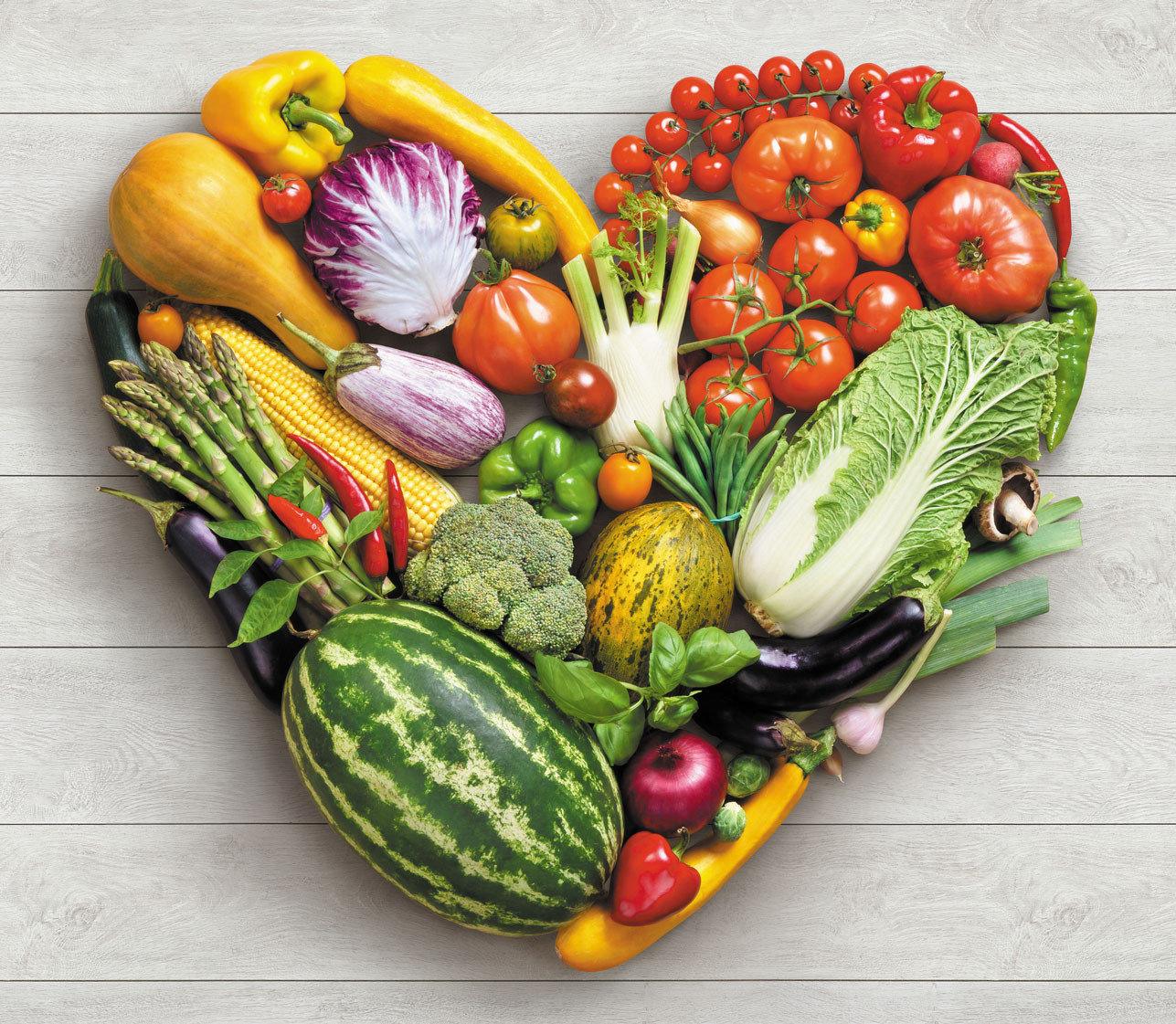The Science Behind Why BBQ Sauces Make Plant-Based Dishes Irresistible
The Science Behind Why BBQ Sauces Make Plant-Based Dishes Irresistible
Blog Article
Everything About Healthy Food: Advantages of Embracing Plant Based Alternatives
The discussion surrounding plant-based diet plans has actually acquired significant attention in recent times. Numerous individuals are checking out the potential wellness advantages, dietary advantages, and ecological effects connected with these nutritional options. As people end up being more familiar with their food's influence on health and sustainability, inquiries develop about the practicalities of adopting such a lifestyle. What details adjustments can one expect, and how might these choices reshape not just personal health and wellness but also the planet's future?
Understanding Plant-Based Diets
Numerous people link plant-based diet regimens mostly with vegetarianism or veganism, these diet plans can include a large range of eating patterns that focus on whole, minimally processed plant foods. Such diet regimens usually consist of fruits, vegetables, whole grains, nuts, seeds, and legumes, while eliminating or limiting pet items. This versatility enables people to customize their nutritional choices according to nutritional requirements and individual preferences. Some might adopt a mainly plant-based diet while still periodically consuming meat or milk, usually described as a flexitarian technique. The emphasis continues to be on integrating more plant foods, which can lead to a diverse range of tastes and dishes. Recognizing these various analyses of plant-based consuming is important for valuing its access and charm in contemporary food culture.
Health Benefits of Plant-Based Foods
The health advantages of plant-based foods are substantial, using a nutrient thickness advantage that sustains overall well-being. Research indicates that these foods can improve heart health and play a necessary function in efficient weight management. By integrating more plant-based choices, people might improve their dietary selections and advertise lasting health and wellness.
Nutrient Thickness Benefit
Nutrient thickness plays a vital duty in the health advantages of plant-based foods, making them a compelling selection for those seeking a balanced diet. Plant-based foods, such as fruits, vegetables, vegetables, nuts, and entire grains, are frequently abundant in important vitamins, minerals, and anti-oxidants while being lower in calories. This high nutrient density permits individuals to take in less calories while still meeting their nutritional demands. Additionally, these foods are loaded with dietary fiber, promoting digestive system wellness and aiding in weight monitoring. By integrating nutrient-dense plant-based alternatives, customers can enhance their total health, support their body immune systems, and reduce the threat of persistent diseases. Inevitably, the nutrient thickness of plant-based foods underscores their relevance in a health-conscious way of life.
Heart Health Renovation

Weight Management Assistance
Along with advertising heart wellness, a plant-based diet regimen can considerably help in weight management. This nutritional method highlights whole foods such as fruits, vegetables, legumes, nuts, and entire grains, which are usually lower in calories and greater in fiber contrasted to animal-based items. The high fiber content aids raise satiation, decreasing overall calorie consumption. Additionally, plant-based diet plans are typically abundant in vital nutrients while low in unhealthy fats, making it easier to preserve a healthy weight. BBQ Sauces. Study suggests that people that embrace a plant-based lifestyle have a tendency to have reduced body mass indexes (BMIs) and experience even more effective weight loss compared to those who consume meat-heavy diet plans. Welcoming plant-based alternatives is a strategic choice for effective weight management.
Nutritional Value of Plant-Based Ingredients
Plant-based active ingredients are rich in necessary nutrients, supplying a diverse range of vitamins, minerals, and anti-oxidants that add to overall wellness. A comparison of protein resources discloses that while animal items are commonly deemed superior, many plant-based choices provide appropriate protein and various other useful substances. Understanding the dietary value of these components can help people make informed nutritional options.
Crucial Nutrients in Plants
Nutrient-rich components located in plants supply a diverse range of crucial minerals and vitamins that contribute greatly to overall wellness. These active ingredients are abundant in vitamins A, C, and K, which sustain immune function, vision, and blood clot, respectively. Furthermore, plants supply crucial minerals such as potassium, magnesium, and calcium, vital for heart wellness, muscle feature, and bone toughness. The presence of fiber in plant-based foods help food digestion and advertises a healthy and balanced gut microbiome. Anti-oxidants, located abundantly in vegetables and fruits, aid combat oxidative stress and reduce swelling. Additionally, several plant foods are low in calories yet high in nutrients, making them a superb option for those looking for to maintain a healthy and balanced weight while ensuring optimal nutrient consumption.
Comparing Healthy Protein Sources
Healthy protein sources differ significantly in their nutritional accounts, with plant-based active ingredients offering special benefits. Unlike animal proteins, which usually consist of saturated fats and cholesterol, plant proteins tend to be lower in these unhealthy components. Legumes, nuts, seeds, and whole grains are rich in vital amino acids, fiber, vitamins, and minerals. As an example, lentils give high protein material together with substantial iron and folate, while quinoa is a total protein, using all 9 important amino acids. Furthermore, plant-based proteins are frequently gone along with by antioxidants and phytochemicals that sustain general health and wellness. The shift to plant-based protein resources not only boosts dietary intake yet likewise lines up with sustainable dietary methods, reducing ecological impact and promoting long-term health and wellness advantages.
Environmental Influence of Plant-Based Eating
As recognition of environment change grows, numerous individuals are discovering lasting nutritional selections that can substantially lessen their environmental footprint. Plant-based consuming has actually become a significant contributor to reducing greenhouse gas exhausts, which are primarily connected with animals production. The growing of fruits, vegetables, grains, and legumes generally requires fewer sources, such as water and land, compared to animal farming. Additionally, plant-based diet regimens can cause decreased logging, as much less land is needed for grazing animals or expanding animal feed. By shifting in the direction of plant-based alternatives, consumers can sustain biodiversity and advertise much healthier communities. On the whole, welcoming plant-based eating not only advantages individual wellness yet additionally stands for an important step towards environmental sustainability and preservation initiatives.
Overcoming Common Misconceptions
While numerous individuals recognize the advantages of a plant-based diet plan, several misunderstandings commonly deter them from completely embracing this lifestyle. An usual idea is that plant-based diet regimens lack adequate protein; nonetheless, numerous plant resources, such as vegetables, nuts, and tofu, supply sufficient protein. In addition, some assume that this diet regimen is costly, when as a matter of fact, staples like beans, rice, and seasonal veggies other can be fairly economical. One more misunderstanding is that plant-based consuming is extremely restrictive, whereas it really offers a varied selection of foods and flavors. Ultimately, several fret that a plant-based diet plan might lead to shortages, yet with proper planning, individuals can get all required nutrients, including nutrients, while appreciating a vast selection of tasty dishes.
Tips for Transitioning to a Plant-Based Way of life
Making the shift to a plant-based lifestyle can be an improving experience, though it often needs some guidance to browse the first adjustments. Initially, people are urged to begin slowly, including even more fruits, veggies, beans, and whole grains into their meals while lowering meat and dairy intake. Dish planning is essential; preparing an once a week menu can help reduce the modification and prevent final unhealthy selections. Exploring new recipes and cooking methods can additionally keep and boost the experience exhilaration regarding plant-based consuming. Additionally, joining support teams or communities can offer motivation and share valuable pointers. Staying notified concerning nutrition guarantees balanced dishes, avoiding deficiencies while cultivating a healthy and balanced, gratifying plant-based lifestyle.

Delicious Plant-Based Meal Ideas
Checking out delicious plant-based dish ideas can motivate individuals to accept an extra healthy diet regimen. One popular choice is a hearty quinoa salad, including cherry tomatoes, cucumber, and a zesty lemon-tahini clothing. Another favorite is a mouthwatering lentil stew, packed with carrots, celery, and great smelling natural herbs, excellent for a soothing supper. For morning meal, overnight oats made with almond milk, chia seeds, and covered with fresh berries offer a nutritious start to the day. In addition, a vivid vegetable stir-fry with tofu and a range see it here of vivid veggies can be a fast yet pleasing meal. Finally, luscious avocado salute on whole-grain bread, sprinkled with seeds and flavors, offers a straightforward yet delicious treat. These dishes showcase the selection and richness of plant-based consuming.

Regularly Asked Questions
Can a Plant-Based Diet Regimen Offer Enough Protein?
The question of whether a plant-based diet regimen can provide enough protein prevails. Various sources, consisting of vegetables, nuts, seeds, and entire grains, can fulfill healthy protein needs successfully, supporting a nutritious and well balanced diet plan for people.
Are Plant-Based Diets Appropriate for Kid?
The suitability of plant-based diets for youngsters depends upon cautious preparation. Sufficient nutrients have to be guaranteed, consisting of minerals, healthy proteins, and vitamins. With appropriate advice, such diet plans can sustain healthy growth and growth in children.
How Do I Dine Out on a Plant-Based Diet regimen?
Eating in restaurants on a plant-based diet plan includes seeking restaurants with varied food selections, requesting alterations, and discovering vegan-friendly alternatives. Preparation in advance and connecting dietary choices can enhance the eating experience while preserving nutritional options.
What Prevail Irritants in Plant-Based Foods?
Typical allergens in plant-based foods include soy, gluten, nuts, and seeds - Plant Based Beef. People following a plant-based diet plan needs to recognize these irritants and check out labels meticulously to stay clear of adverse reactions and assure secure intake
Can Plant-Based Diets Assist With Fat Burning?
Research indicates that adopting a plant-based diet regimen may promote fat burning due to its typically lower calorie density and higher fiber material. This combination can enhance satiety, helping people handle their caloric intake effectively. Lots of individuals associate plant-based diet regimens mainly with vegetarianism or veganism, these diet regimens can incorporate a broad range of consuming patterns that prioritize whole, minimally refined plant foods. Nutrient density plays a necessary duty in the health advantages of plant-based foods, making them a compelling selection for those looking for a balanced diet. Plant-based diet regimens have actually been shown to markedly improve heart health, as they usually contain aspects that sustain cardio feature. In enhancement to advertising heart health, a plant-based diet plan can substantially aid in weight administration. A common belief is that plant-based diet plans do not have sufficient healthy protein; however, many plant sources, such as vegetables, continue reading this nuts, and tofu, provide enough protein.
Report this page